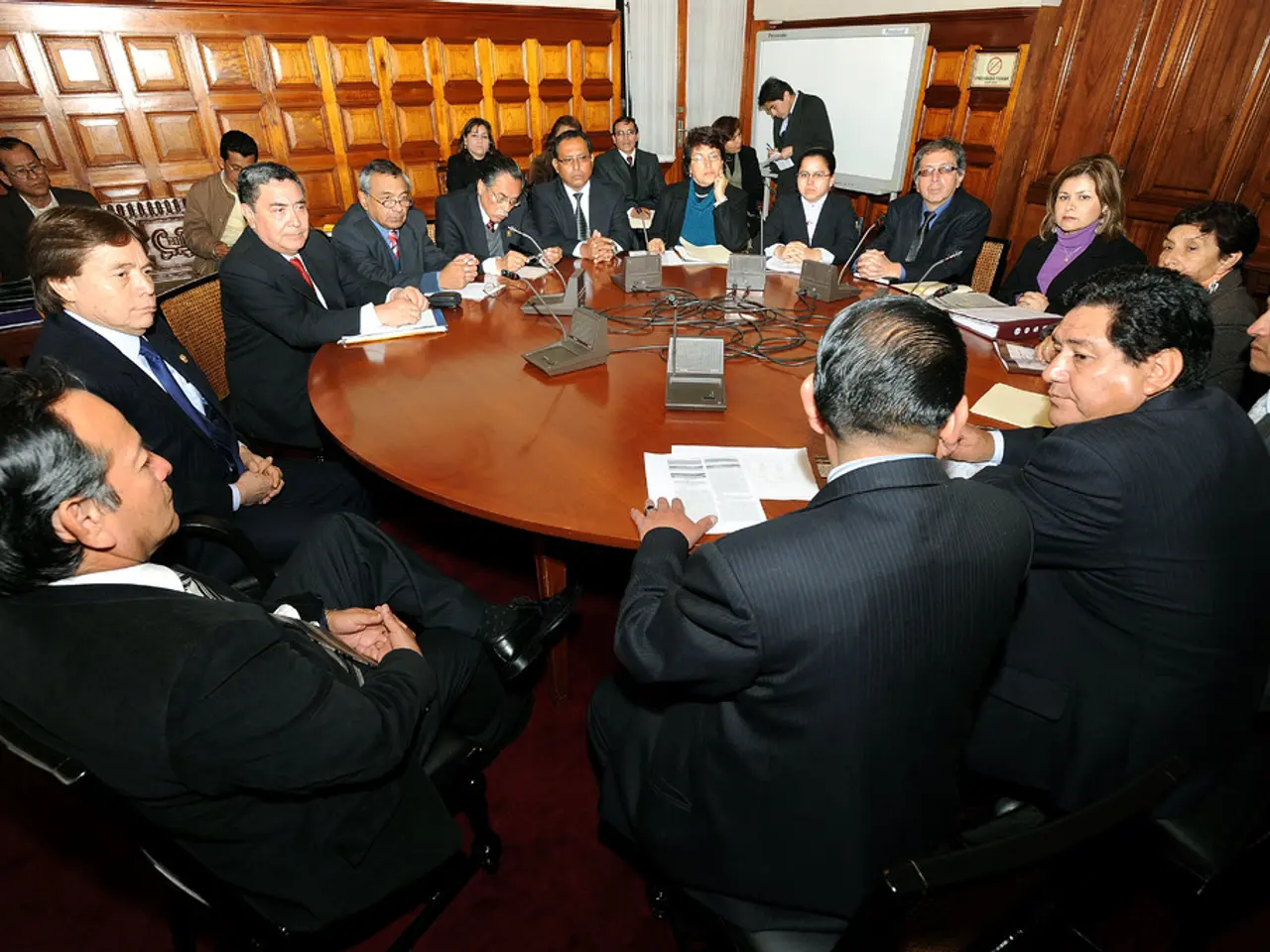The Finance Minister's plan for repaying massive debts
In a nutshell, German Finance Minister Lars Klingbeil is relying on a mix of strategic spending, fiscal discipline, and economic growth to tackle the colossal €850 billion debt he plans to take on. Let's dive in and see how he intends to get this monstrous elephant off Germany's back.
Germany, once the beacon of economic stability, is stepping further into the debt swamp, promising a mountain of 850 billion euros—that's more than 850,000 metric tonnes of €100 notes, roughly equivalent to the combined weight of 120 million people! This alarming figure is a result of the government relaxing the debt brake. But fear not, as Klingbeil himself has suggested, it's all part of the plan.
He swears by the three C's: economic growth, structural reforms, and consolidation. A slew of commissions will be set up to analyze ways to streamline the care sector and squeeze savings from other sectors. However, to build momentum for his debt-shredding strategy, Klingbeil emphasizes the necessity of a strong, thriving economy.
But what if, contra spirium, the economy doesn't play ball? "Fear not," saith Klingbeil, "Everything is subject to the good ol' funding reserve!" This reserve will come in handy during those rocky economic periods, like when unpredictable events such as Trump's volatile trade policy make things sticky.
One of the most hotly debated topics? The mother's pension. The temptress of a payment, as described by the talk show host, is on everyone's lips. Klingbeil left the room spinning, playing hard to get: "If the financial conditions are right, we'll do it." He gestured to the Bavarian leader, Markus Soeder, as he threw his word of honor onto the table: "I'll do everything in my power to make the mother's pension happen."
Curious about the inner workings of Finance Ministry advisors? Well, Jens Südekum, Klingbeil's right-hand man, has spilled some tea, grumbling about the CSU's frivolous spending such as the VAT reduction for the hospitality industry and, of course, the mother's pension.
While artists may paint this budget as a spendthrift escapade, Klingbeil insists that savings are still on the menu. He and his cabinet colleagues have managed to scrape together some change by reducing admin funds, scaling back on development cooperation, and slashing public-sector employment at a rate of 8% by 2029. All this to avoid bankrupting the national treasury.
But there's more to Klingbeil's plan. Some left-wing SPD politicians have penned the "Manifesto of the Damned," advocating a military-focused approach, sinking hundreds of billions into a military arms race. Unsurprisingly, Klingbeil isn't feeling the love. "This manifesto contradicts itself," he quipped, "You can't beef up your military might AND engage in peace talks. It's clear to me who's the one trigger-happy over there!"
So, will Klingbeil's lofty budget plan survive intact, or will it be popped like a bubble by economic challenges, political drift, or the whims of international affairs? Only time will tell. For now, Germany is preparing a brave face as it plods forward, hoping that its slow-and-steady strategy will ultimately reap the rewards. At least, that's Lars Klingbeil's gamble. One can only hope he lands on a four-leaf clover this time.
Sources: ntv.de, Eurostat, Bundesregierung.de, Handelsblatt, Der Spiegel
- Lars Klingbeil
- Black-Red Coalition
- Fiscal Policy
Enrichment Data:German Finance Minister Lars Klingbeil's strategy for managing the repayment of the additional €850 billion debt and associated interest revolves around strategic spending, austerity measures, and economic growth. Key points include:
- Increasing Debt and Interest Repayments: The new debt will double Germany's annual interest repayments from about €30 billion to approximately €61.9 billion by 2029.
- Focused Spending on Defense and Investments: The significant borrowing is mostly intended for defense spending (up from around €62 billion in 2025 to over €152 billion by 2029), along with investments like infrastructure and climate change projects.
- Adhering to the Debt Brake in Non-Defense Areas: Despite the relaxation, Klingbeil intends to maintain strict fiscal discipline outside of defense and investment, continuing cuts in social spending and public-sector employment (aiming for an 8% reduction in federal employees by 2029).
- Fiscal Discipline in Non-Defense Areas: To finance the increased debt servicing and new borrowing, Klingbeil is pursuing austerity in other areas, fending off demands for additional spending increases from cabinet colleagues by around €50 billion.
- Sustaining a Low Debt Ratio: With a relatively low debt-to-GDP ratio (around 63%), Klingbeil is banking on continued fiscal restraint elsewhere to ensure Germany's financial stability.
- In line with the common foreign and security policy, Finance Minister Klingbeil plans to divert some resources towards defense spending, as part of the strategy to repay Germany's mega-debts.
- Delving into personal-finance management, Klingbeil and his cabinet colleagues aim to reduce admin funds and public-sector employment to offset the increase in borrowing costs.
- Despite increased debt servicing, Klingbeil adheres to the fiscal discipline pillar of the common security policy by maintaining strict fiscal discipline in non-defense areas, such as social spending and public sector employment.




